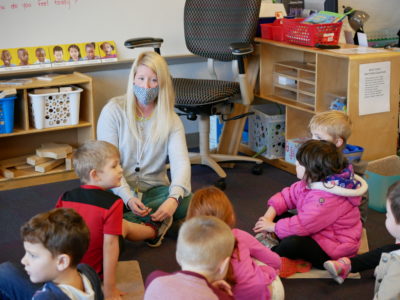
The following is Mary Ann Wolf’s “Final Word” from the March 13, 2021 broadcast of Education Matters: “Developing a School Finance System that Provides Adequate, Equitable, and Efficient Resources to Every Child.”
We are exploring resources and funding for our schools — and it is important to note that we are not talking about funding for the sake of funding. We are talking about investments in critical elements that research has shown make a significant difference in improving academic outcomes and ensuring a high quality and equitable education for all students. Not only would we like to ensure that happens, but it is also mandatory.
Our state constitution requires that each and every child across North Carolina has access to a sound basic education. This includes investments in teachers, school instructional support personnel, principals, early childhood education, and postsecondary attainment.
As we take a hard look at our educational investments across our school districts, it is also important to acknowledge where North Carolina falls nationally in terms of investing in our schools.
North Carolina’s estimated average per-pupil spending for 2019-20 was almost $3,000 less than what the projected national average was for that year (National Education Association). Investments in education must always be strategic and well-placed.
Just what is a sound basic education? Over the past 25-plus years, rulings in North Carolina’s landmark school funding court case — known as Leandro — have defined just what a sound basic education looks like.
It includes baseline student abilities around reading, math, and physical science as well as being able to make informed choices in their communities. They must also be well-equipped to be able to compete in both college and career and become gainfully employed citizens.
While many of our students graduate from high school having experienced a sound basic education and have gained the excellent outcomes associated with that experience, not all of our students do — in particular those who are at-risk including: students of color; English language learners; and economically disadvantaged students.
A lot of that has to do with the inequitable distribution of resources across our great state.
Fortunately, we have the tools — and the resources — necessary to fix this problem that has gone on for far too long.
In addition to taking action on some matters that have been discussed in previous Education Matters segments, including ensuring a qualified and well-prepared teacher and principal is in every classroom, we can revise the state’s school funding formula so current and additional funding is distributed to students with the greatest need.
There are many ways to do this with funding mechanisms already in place, that with some modifications, can ensure our resources are distributed in ways that ensure equity and success for all of our students.
Another critical change we can make is to increase budgetary flexibility for our local school districts so local leaders are able to use funds in ways that best meet the needs of their students. This kind of flexibility would ensure that academically gifted students, students with disabilities, students living in economically disadvantaged counties and other at-risk students will have the resources they need to succeed.
Finally, we can increase flexible funding for student instructional support personnel to meet the academic, physical, and mental health needs of students and to ensure that schools are safe and supportive learning environments.
These investments are critical in the short-term due to the impact of COVID-19, and will also begin to address the well-documented resource inequities that disproportionately disadvantage students of color, English language learners, and low-income students in North Carolina.
We know that:
- Teachers are the number one school-related factor that affects student outcomes and principals are second.
- Addressing social and emotional learning and trauma-informed practices effectively leads to significant academic gains.
- Early childhood and pre-K education improves student outcomes in elementary school and for the rest of their education.
- Postsecondary attainment is important to be successful in a career and that it also helps our state’s economy.
All of these critical factors require resources and funding. That is why adequate and equitable funding is critical for all of North Carolina’s students.


